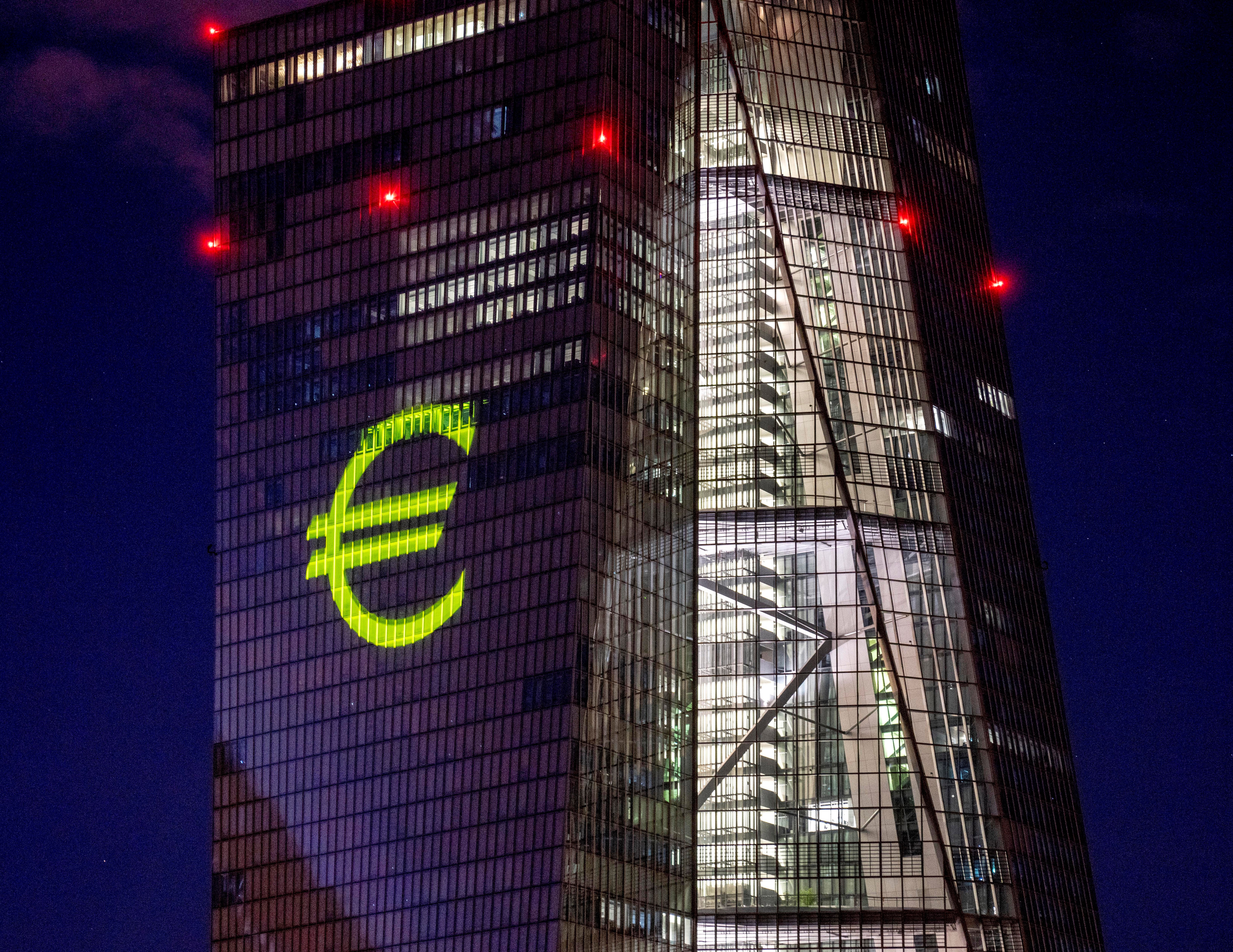Eurozone annual inflation drops to 6.7% in March from 8.5% last month
Statistics indicate that the Eurozone's inflation rate has dropped to 6.7%, but the figure remains significantly higher than before the start of the war in Ukraine.
-

A light installation is projected onto the building of the European Central Bank during a rehearsal in Frankfurt, Germany, December 30, 2021 (AP).
The preliminary estimates of the statistical office of the European Union, Eurostat, the annual inflation in 19 eurozone countries slowed down to 6.9% in March from 8.5% month-on-month.
In a statement, Eurostat said that the "Euro area annual inflation is expected to be 6.9% in March 2023, down from 8.5% in February, according to a flash estimate from Eurostat."
The annual inflation rate across the Eurozone in December reached 9.2% after which it dropped to 8.6% in January.
Germany's businesses outlook reveals a 40% decline, 30% stagnation
A survey by the German Economic Institute (IW), in January 2023, revealed that high energy costs, supply chain problems, and the ongoing war in Ukraine, are behind the 2023 business shrink expected in four out of ten German companies.
According to the IW report, "The risk of a gas shortage in the 2022/23 winter season is no longer as present as it was in the summer of 2022, and energy prices have also retreated since then. However, they remain at a high level and production disruptions cannot be ruled out."
The report noted that throughout 2023, it will become clear "how extensive gas and energy supply can be built up for the next winter and the extent of any possible disruptions that could occur in 2023."
A poll of nearly 2,500 businesses revealed that, in addition to the 40% decline, almost a third of businesses anticipate production stagnation, while the remaining 25% anticipate growth.

 2 Min Read
2 Min Read










